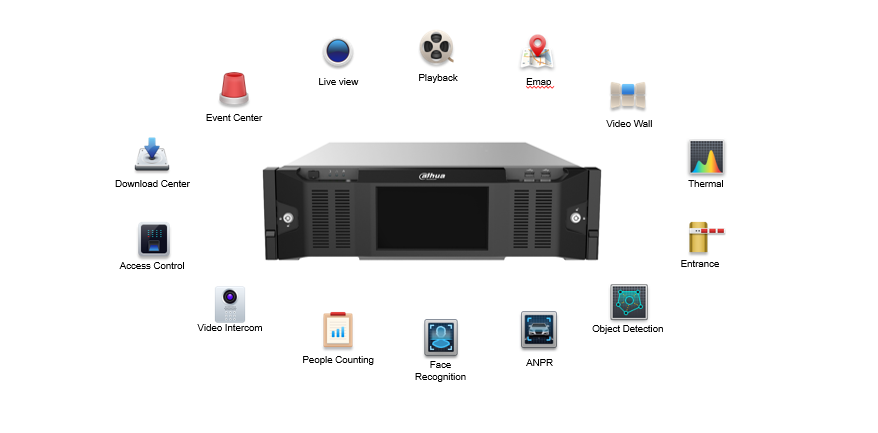Video Servers
Video Servers

A video server is a computer-based device that is dedicated to delivering video. Video servers are used in a number of applications, and often have additional functions and capabilities that address the needs of particular applications. For example, video servers used in security, surveillance and inspection applications typically are designed to capture video from one or more cameras and deliver the video via a computer network. In video production and broadcast applications, a video server may have the ability to record and play recorded video, and to deliver many video streams simultaneously.
Video surveillance and inspection
In some surveillance and inspection applications, IP video servers are employed which convert analog video signals into IP video streams. These IP video servers can stream digitized video over IP networks in the same way that an IP Camera can. Because an IP Video server uses IP protocols, it can stream video over any IP-compatible network, including via a modem for access over a phone or ISDN connection. With the use of a video server attached to an analog camera, the video from an existing surveillance system can be converted and networked into a new IP surveillance system.
In the video security industry, a video server is a device to which one or more video sources can be attached. Video servers are used to give existing analog systems network connectivity. Video servers are essentially transmission/ telemetry / monitoring devices. Viewing is done using a web browser or in some cases supplied software. These products also allow the upload of images to the internet or direct viewing from the internet. In order to upload to the internet an account with an ISP (internet service provider) may be required.
Phone apps that send direct security video feed to smartphones from security video servers are another recent security video server application innovation. This allows smartphone users to view security video server feed from anywhere they can use their smartphone
- Main Features
- Enhanced video viewing experiences
- Reduced video infrastructure costs
- Simplified network management complexity
- Improved IT ecosystem scalability
